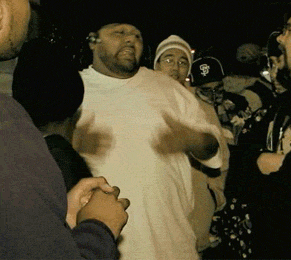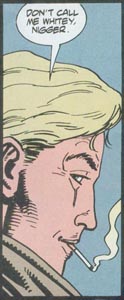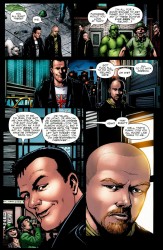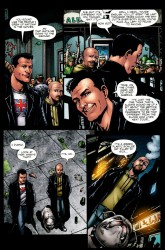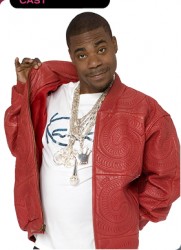
Black History Month ’09 #18: One What? One Love
February 18th, 2009 Posted by david brothersThe thing about black culture, and this is something that’s often understated or ignored when discussing race in America, is that it is American culture, through and through. Black culture has permeated American culture across a variety of formats and in varying degrees. In music, the progression from gospel, blues, jazz, rock, and rap has run the industry for decades. Kids all over the country are wearing white tees and baggy jeans, no matter their racial background or upbringing.
Is it racial appropriation? Is Eminem a wigger because he’s a kid who grew up to be a rapper? Is Ill Bill out of line for making White Nigger, about his childhood growing up as a white Jew? Was it cool for Big Pun, a puerto rican from the Bronx, to be one of the best emcees that ever did it? Or did they grow up able to relate?
One of my favorite music videos is Three 6 Mafia’s “Dope Boy Fresh.” The important part is the video part of the music video. The song is straight, but beside the point. It’s a flip on the movie Being John Malkovich, and allows viewers a trip into the mind of Three 6. My favorite bits in the video are the young kid at the beginning (“Murcielago with the wings out!”) and the asian girl at the end (around 3:33, though 3:36-3:38 is on some next level amazing type thing).
The first thing I thought when I saw this video was “Man, that’s pretty dang cool.” It’s a video that stuck with me, though, which doesn’t happen with most. The more I thought about it, the more I felt like it was illustrating some seriously basic point, a point so basic that it was tough to put it into words. Realizing that these people were stepping into someone else’s shoes and clothes, but still looking normal was the key. Sure, the old white dude is kinda corny, like the old guy at the club who nobody knows but keeps dancing with the young girls, but the rest of them just look like people. They look natural.
It put something into perspective for me. I’ve never really bought into the idea of wiggers or whatever. C-Rayz Walz and 4th Pyramid’s “Blackout” basically killed that entire idea for me.
If you black, with a degree, and you work
and got a happy family, they say you wanna be white!
If you white, with bells, smoke weed, listen to rap
and live free, they say you wanna be black!
It’s all the same. The white kid on the bus with his short hair covered by a New Era isn’t jacking culture or appropriating ideas. At this point, he probably grew up with it. It’s what he knows. It’s what we both know.
Coming to this realization was the final nail in the coffin for both wiggers and blacks in comics being something special. Everybody’s got black friends. My mom listens to some rap, but she also put me on to No Doubt back when Tragic Kingdom came out. I’ve got white friends who consistently surprise me with their rap knowledge.
Comics, in general, treat white males as normal. Women and people of other races are notable, and are judged on a frankly pathetic scale. If you write a mediocre comic featuring a gay couple or a black guy or a woman, well, hey! Have these awards! Way to go! The barrier for quality is lower, since if you’re already doing something adventurous by even writing black people, you must be doing something right!
If you compare comics and real life, though, you’ll find a different story. It’s 2009. At this point, so many things are normal that were not previously that comics need to adjust to compensate. We don’t need Black Panther launching during Black History Month twice in a row. It’s nice, and I appreciate the sentiment, but break out of this idea that each new thing that isn’t white and male is an event.
At the same time, we need to stop rewarding people for doing the barest minimum. Ham-fisted allegories or cheap and emotionally manipulative scenes means that you’re a hack writer, not some revolutionary bringing the truth down off the mount.
If you go outside, you’re going to see someone who looks, talks, or acts like me. If I go outside, I’ll see someone who looks like you. We’re both normal. We are different, but we aren’t different. By and large, we share the same culture.







